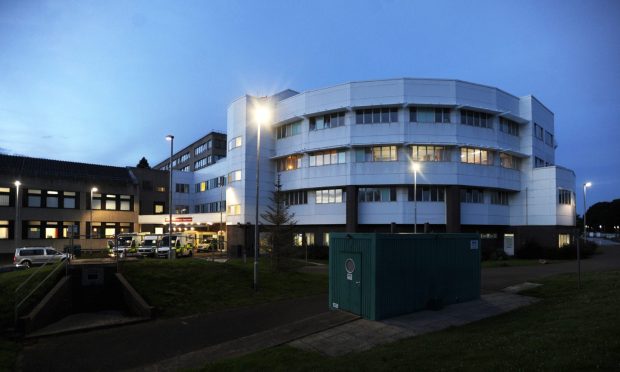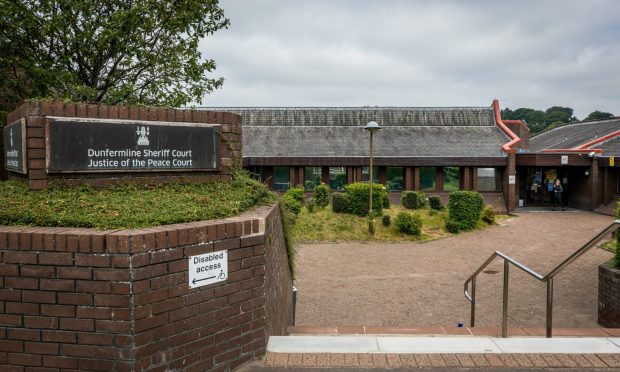A new “triple-checked” procedure was introduced after the death of a woman erroneously given up to ten times the recommended dose of a labour-induction drug at Ninewells.
Jacqui Hunter died on May 13 in 2020 after being admitted to the hospital in Dundee to deliver her baby Olivia, tragically found to have died in utero the day before.
Mrs Hunter, from Angus, died as a result of an amniotic fluid embolism (AFE), a rare obstetrics complication.
An inquiry into her death has revealed NHS Tayside has ramped up protective measures relating to a drug Ms Hunter was given while in hospital.
Currently, a fatal accident inquiry is exploring the circumstances of the death.
It is focusing on the care and treatment provided by the medical staff at Lochee Medical Practice and Ninewells.
The inquiry aims to establish whether steps might have been taken to avoid death.
Unlike criminal proceedings, FAIs are inquisitorial in nature and used to establish facts rather than apportion blame.
The court probe was fixed on a discretionary basis, with a procurator fiscal stating Mrs Hunter’s death occurred in circumstances “giving rise to significant public concern.”
AFE is a life-threatening childbirth emergency in which amniotic fluid enters the mother’s bloodstream.
It triggers a serious reaction, resulting in cardiorespiratory collapse and massive bleeding.
Post-mortems on both Mrs Hunter and baby Olivia were carried out by Dr Paul Brown, a paediatric and perinatal pathologist now based in New Zealand.
Overdose
At Ninewells, a dose of misoprostol was prescribed and administered to Mrs Hunter shortly before her death.
It is medication used to prevent and treat stomach and duodenal ulcers, induce labour, cause abortions and treat postpartum bleeding.
The dissolving, fingernail-sized tablets were administered vaginally an hour or two before the procedure.
The dose was between eight and 10 times the NHS Tayside guidance.
Once the overdose was noticed, no attempts were made to try to retrieve any trace of the two unabsorbed tablets.
The inquiry heard it is something for which there is no protocol.
‘No breach of duty of care or negligence’
Expert witness consultant obstetrician Dr Philip Owen told the inquiry: “There was an opportunity to limit the overdose by attempting to retrieve (any unabsorbed tablets).
“That opportunity wasn’t taken.
“It would have been no more or less for the woman to experience than putting them in in the first place.
“In my opinion, there was no material obstruction to at least attempting to retrieve the misoprostol fragments.
“It may have been successful, it may have been singularly unsuccessful but there is no material downside.
“It was certainly, in my view, a missed opportunity.
“Was it more than that? Does it fulfil a breach of duty of care or negligence?
“Having heard a little bit more, my answer to that would probably be ‘no’.”
‘No safety checks in place’
Dr Antony Nicoll, a consultant obstetrician and gynaecologist at Ninewells, gave evidence in the virtual hearing.
Dr Nicoll was not the clinician in charge of Mrs Hunter’s care, but gave evidence to explain what new processes are in place.
The 51-year-old said: “At the time of Jacqui Hunter’s passing, misoprostol was prescribed by an individual with no safety checks in place.
“Following on from Jacqui Hunter’s passing, the system that we have in place now is that misoprostol must be prescribed by a consultant.
“There is a checklist that must be completed.
“The administering midwife signs this form as well. A second midwife countersigns it.
“We have a triple check.
“Since we introduced this checklist, we haven’t had an adverse event.”
The fatal accident inquiry at Dundee Sheriff Court, before Sheriff Jillian Martin-Brown, continues.
For more local court content visit our page or join us on Facebook.











